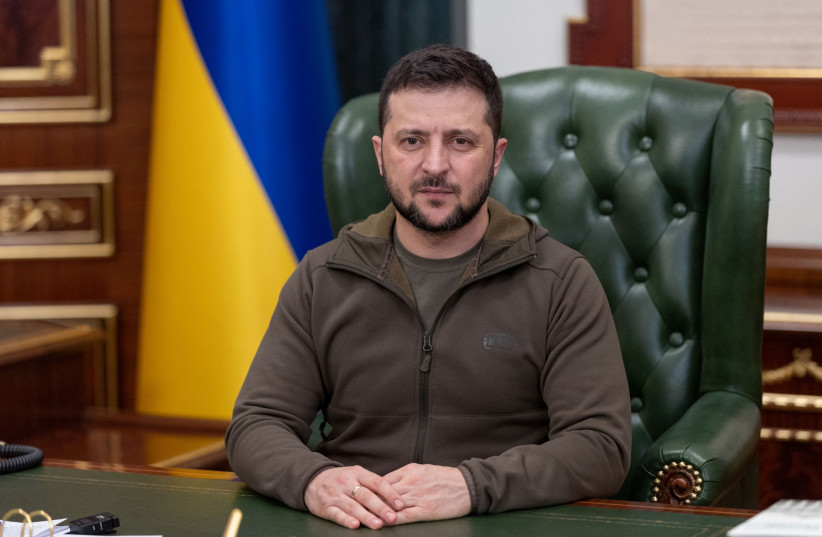Ukrainian President Volodymyr Zelensky gave a brilliant, inspirational speech before Congress and the people of the US. He rightly charged Russian President Vladimir Putin with his brutal onslaught against the people of Ukraine and their sources of energy, as well as for unlawfully invading the country and fighting the military forces of Ukraine.
Commentators have likened Zelensky to former British prime minister Winston Churchill, who inspired the people of Great Britain to hold off the Nazi onslaught after France and most of Western Europe had fallen. Churchill chanted over the radio, “We will never surrender.” Zelensky chanted the same in the chamber of the House of Representatives.
“We will never surrender.”
Winston Churchill and Volodymyr Zelensky
There are parallels between the situation of Ukraine today and the situation of Great Britain in the summer and fall of 1940, before and during the Battle of Britain, over a year before the Empire of Japan attacked the US at Pearl Harbor. But there is also a huge disanalogy and it needs to be highlighted.
Russia isn't Nazi Germany, this isn't the same as World War II
Russia, unlike Germany in 1940, does not possess the most threatening land army in the history of the world. There is also no sound line of reasoning to indicate that Russia, unlike Germany in 1940 and 1941 and 1942, has embarked on a mission to seize control of Continental Europe and destroy the US.

It can be argued that Russia, if it succeeds in toppling Ukraine, which is unlikely, or in seizing control of two to four regions of southern Ukraine, which is somewhat likely, would try to regain control of some of her former satellite states – notably the Baltic countries of Estonia, Lithuania and Latvia. One can imagine them going after Finland, Poland and even Romania.
But any attempt Russia makes to go after any of these countries will be met by a military response by NATO, which is obligated to defend any of these countries if they are attacked. There could be a war or separate wars in the years ahead in any or all of these countries. Yet Russia’s conventional war machine has proved incapable of defeating Ukraine in 10 months and it is hard to see how they would roll over these NATO countries the way Hitler rolled over Belgium, Holland, Poland and France.
IN SHORT, Russia does not pose a realistic threat of easily seizing control from the standpoint of conventional war to any NATO countries let alone all of Europe or the US. But they may still invade them.
In this regard, Ukraine is refusing to compromise and reach a peace settlement with Russia that includes the exchange of some territory for peace. This may trigger the feared use of nuclear weapons by Putin.
Russia and the US are the world’s leading nuclear states and Russia could do massive harm in East Europe, West Europe or anywhere around the globe. At the same time, they would subject themselves to retaliation, especially from the US, if they started dropping strategic nuclear weapons on any NATO countries, and even if they started deploying tactical nuclear weapons in Ukraine or any of the former satellite countries.
Putin, in short, is not Hitler, and Russia is not Nazi Germany. Putin would have to be extremely careful about trying to take down any other former satellite states. At this point, he would be lucky to get some territory from Ukraine.
The upshot is that however moved we were by Zelensky’s powerful speech, it does not present a good parallel with our fight against either Nazi Germany or the Empire of Japan in World War II.
The US is essentially funding this war, one the men and women of Ukraine are bravely fighting. But the future of democracy around the world is not really at stake. The future of democracy in Ukraine most definitely is and there are admittedly some threats to some neighboring countries.
What American leaders and our European friends must do now is think hard about whether Zelensky’s uncompromising position is in his best interest, our best interest or the best interest of the other NATO countries.
Should we finance this war for another 10 months, 20 months or more?
Zelensky has rallied his own people and the West overall. We must, however, conceptualize the war with Russia for what it is and not treat it as a replay of 20th-century fascism or the Cold War.
Let’s not mislead ourselves into thinking we are fighting World War II. If we do, we may indeed end up fighting World War III.
The writer (dmamaryland@gmail.com) has taught ethics and political philosophy at five US colleges and universities, and is editor of the interdisciplinary volume, Leveraging (Springer, 2014).
